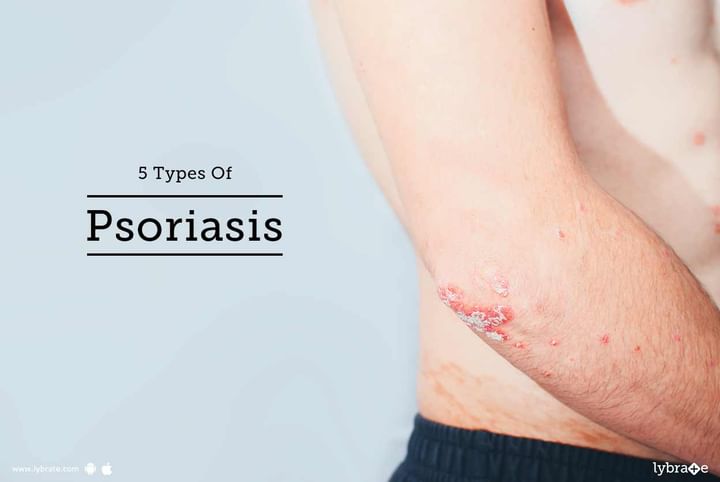5 Types Of Psoriasis
Psoriasis is a durable autoimmune disease defined by patches of irregular skin. These patches of skin are usually scaly, red and itchy. Its symptoms vary greatly in severity, the coverage might be small and focused or it could spread all over the body.
Types:
There are mainly five types of psoriasis:
- Plaque: also called psoriasis vulgaris, is the most common kind of psoriasis (90% of cases). It affects the skin behind the forearms, over the navel, shins and scalp, usually presenting itself in red patches with white- colored scales over it.
- Guttate: has lesions that are drop-shaped.
- Inverse: red patches show up in the folds of your skin.
- Pustular: pus-filled blisters form. They are non-infectious.
- Erythrodermic: the rash spreads wider. In some people, even fingernails and toenails get affected as pits may form on them or their colour may change.
Causes:
Anything from emotional trauma and stress to streptococcal infection can cause psoriasis. Sometimes you might carry predisposition for psoriasis in your genes and stress may aggravate it. Environmental factors may also lead to psoriasis. And then again defects in the immune system may also be the underlying cause. Even after thirty years of research, the exact cause for psoriasis remains a mystery. There is no age limit to psoriasis. It can show up from anywhere between infancy to old age.
Symptoms:
Common symptoms include
- Pink or red scaly bumps that are smaller in size, but become plaques later, show up on the skin. Although these scales can show up anywhere, they are mostly common on sites where there is much friction, abrasion or scratching.
- Small pinpoint depressions or pits might show up on toenails and fingernails. Distal onycholysis, which refers to large brown/yellow divisions on the nails, shows up as well.
- Sore throat may follow if it is guttate psoriasis.
Treatment:
Psoriasis is not curable. But its symptoms can be managed with steroid creams, ultraviolet creams, vitamin D3 creams and with medicines that act as immunosuppressants. Creams alone can help control symptoms in 75% of patients with psoriasis.



+1.svg)
